NewsBeat
Email demands US government workers report DEI programmes
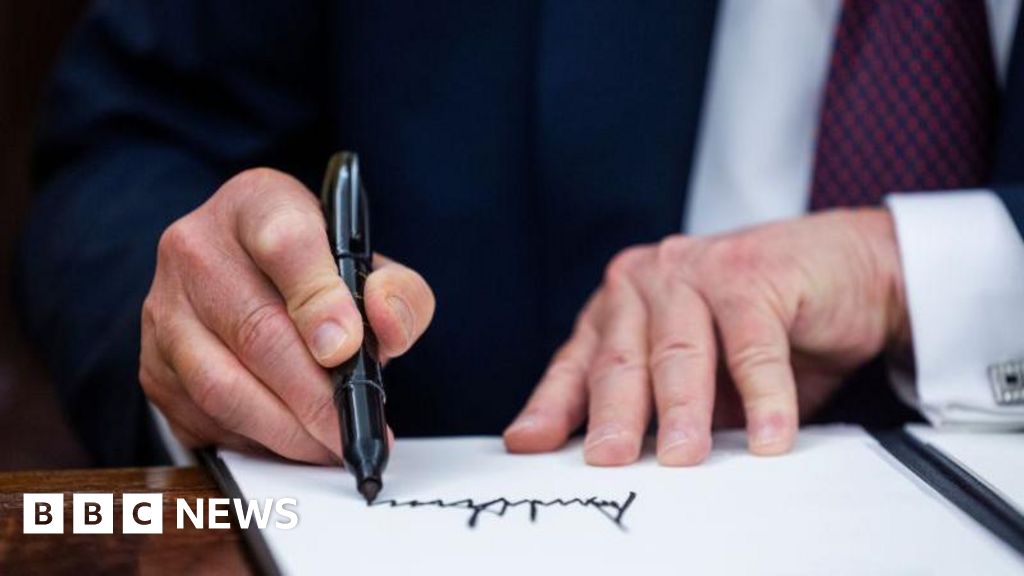
The Trump administration emailed thousands of federal employees on Wednesday, ordering them to report any efforts to “disguise” diversity initiatives in their agencies or face “adverse consequences”.
The request came after President Donald Trump banned diversity, equity and inclusion (DEI) offices and programmes throughout the government.
Emails seen by the BBC directed workers to “report all facts and circumstances” to a new government email address within 10 days.
Some employees interpreted it as a demand to sell out their colleagues to the White House.
“We’re really freaked out and overwhelmed,” said one employee at the Department Health and Human Services (HHS).
The Office of Personnel Management, which manages the federal workforce, issued guidance requiring agency heads to send a notice to their staff by 17:00 eastern time on Wednesday. It included an email template that many federal staffers ultimately received that night.
Some employees, like those at the Treasury Department, got slightly different versions of the email.
The Treasury Department email excluded the warning about “adverse consequences” for not reporting DEI initiatives, according to a copy shared with the BBC.
In one of his first actions as president, Trump signed two executive orders ending “diversity, equity, and inclusion” or “DEI” programmes within the federal government and announced any employees working in those roles would immediately be placed on paid administrative leave.
Such programmes are designed to increase minority participation in the workforce and educate employees about discrimination.
But critics of DEI, like Trump, argue that the practice itself is discriminatory because it takes race, gender, sexual identity or other characteristics into consideration.
Trump and his allies attacked the practice frequently during the campaign.
In a speech Thursday at the World Economic Conference in Davos, Switzerland, Trump declared he was making America a “merit-based country”.
Critics of DEI have praised Trump’s decision.
“President Trump’s executive orders rescinding affirmative action and banning DEI programs are a major milestone in American civil rights progress and a critical step towards building a colour-blind society,” Yukong Mike Zhao, president of the Asian American Coalition for Education, said in a statement.
The group had supported a successful effort at the US Supreme Court to overturn affirmative action programmes at US universities.
But current federal employees, who spoke to the BBC on condition of anonymity because they feared retaliation, said that the email they received felt more like an attempt to intimidate staff than to make the government more fair.
The White House did not immediately respond to a request for comment.
President Trump has signed a torrent of executive orders since he took office, including a hiring freeze in the federal government, an order for workers to return to the office and an attempt to reclassify thousands of government employees in order to make them easier to fire.
The HHS employee who spoke to the BBC criticised the government’s DEI practices, believing that while it was important to build a diverse staff and create opportunities in health and medical fields, “identity politics have played into how we function normally and that’s not beneficial to the workforce”.
“But that doesn’t mean I want my colleagues to get fired,” the employee added.
He described the the impact the email and the DEI orders had on his agency as “very calculated chaos”.
The employee’s division had been thrown into confusion, he said, with questions about hiring practices going forward, as well as what programmes and directives were allowed to continue, given Trump’s broad definition of DEI.
A second HHS employee said that hiring and research grants had been frozen and the entire department staff was waiting to see what they could do next.
The HHS, and one of its subsidiary agencies, the National Institutes of Health (NIH), issue millions of dollars in federal grants to universities and researchers across the globe to advance scientific research.
Agency employees feared that the DEI order could have an impact outside the government as well. One questioned if grants that allowed laboratories to create more opportunities for hiring minority scientists and medical professionals would now get the axe.
An employee who worked at the Food and Drug Administration told the BBC that she had not received the email, but all DEI-related activities had been paused.
“We have been told by seniors to keep doing our jobs,” she said. “But there is a sense of fear about how it’s going to have an impact on our work in general.”
NewsBeat
Priest who led Southport funeral fights back tears after sentencing | News

A priest who led Southport victim Alice da Silva Aguiar’s funeral after she was murdered by Axel Rudakubana fought back tears as he paid tribute to the nine-year-old after her killer was sentenced.
On Thursday (23 January) the 18-year-old was jailed for life with a minimum of 52 years for murdering Alice, Bebe King, six, and Elsie Dot Stancombe, seven, and stabbing several others in an act of “extreme violence” at a Taylor Swift-themed dance class in July 2024.
Remembering Alice, Father John Heneghan described the young girl — whose Holy Communion he presided over months before she died — as “radiating joy.”
NewsBeat
Southport MP calls for ‘harsher’ Axel Rudakubana sentence
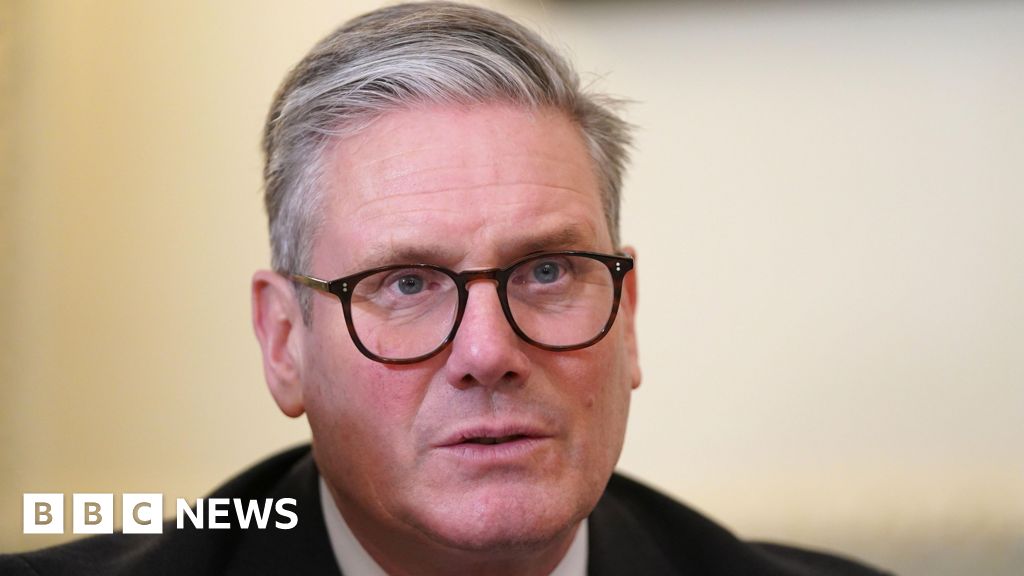
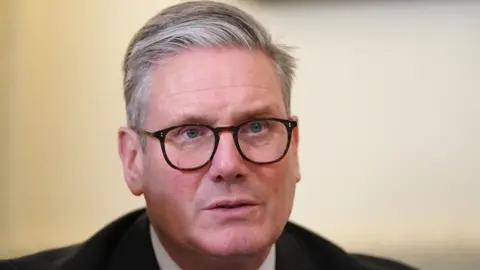 PA Media
PA MediaThe MP for Southport, where Axel Rudakubana murdered three young girls, has demanded a review of the killers 52-year jail sentence – arguing it is “not harsh enough”.
Labour’s Patrick Hurley has asked the Attorney General to review if the sentence was “unduly lenient” claiming it does not “reflect the crimes”.
Rudakubana cannot apply to leave prison until the year 2077 after pleading guilty to the murders of Elsie Dot Stancombe, seven, Bebe King, six, and Alice da Silva Aguiar, eight.
The killings triggered a wave of political outrage, including from Prime Minister Sir Keir Starmer who called the attack, which wounded eight more children, “one of the most harrowing moments in our country’s history”.
In a statement Sir Keir said: “What happened in Southport was an atrocity and as the judge has stated, this vile offender will likely never be released.”
But Hurley argued Rudakubana’s sentence “is not severe enough, it is not long enough for the crimes committed”.
Attorney General Lord Hermer and Solicitor General Lucy Rigby now have 28 days to decide if they will refer the sentence to the Court of Appeal.
Critics of the judge’s decision would have to convince the Court of Appeal that the sentence – believed to be the second-longest minimum term ever – is not just shorter than they would have wanted, but “unduly” so.
Because Rudakubana acted nine days shy of turning 18, by law he cannot be sentenced to a whole-life order – which would mean he could never be released from jail.
Hurley joined Tory leader Kemi Badenoch in calling for law change to allow for whole life orders to be imposed on people aged under 18 in some cases.
Badenoch said “Rudakubana should never be released from prison” after destroying “countless lives” and sowing a “legacy of mistrust” across the country.
The Conservatives “will start to explore” how to change the law, she said.
Despite the severity of the attack the Crown Prosecution Service (CPS) decided the attack did meet the legal definition of terrorism, due to a lack of evidence Rudakubana sought to advance any political, religious, or ideological agenda.
But Badenoch called the attack a “terrorist” incident, and called on others to stop “avoiding these hard truths”.
Leader of Reform UK Nigel Farage demanded the CPS chief resign for failing to class the case as terrorism.
“This barbaric and senseless attack was clearly both political and ideological,” Farage said.
“The British public needs to have confidence in the CPS and our police forces. Tens of millions of British citizens will find it incomprehensible how the CPS decided this was a non-terror incident and maintained that position.”
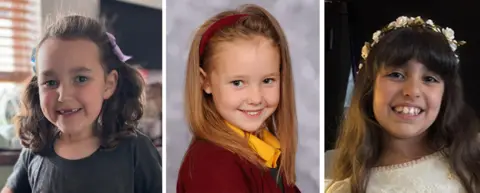 PA Media
PA MediaHome Secretary Yvette Cooper condemned Rudakubana’s attack as “horrendous, cowardly, and evil” and said the government had pledged to hold a national inquiry.
“We have vowed to get the answers the country deserves about how this horror was allowed to happen and to ensure that lessons are learned,” she said.
Further details would be set out soon, she said, but added “for today, all our thoughts are with the families enduring this unimaginable pain, and the example of strength and courage they have provided to us all”.
Conservative shadow home secretary Chris Philp backed the inquiry, but accused the government of overseeing an information vacuum after Rudakubana’s arrest, which sparked a wave of riots across the UK last summer.
Philp is one of many critics that have accused the CPS and government of withholding key details after the attack, such as Rudakubana’s three referrals to anti-extremism programme Prevent, his creation of enough ricin to kill 12,000 people and the extent of his fixation on violence and genocide.
Posting on social media, Philp said: “The prime minister and CPS could have been more open with the public. This would have avoided misinformation filling the void, and fuelling the riots.
“The inquiry must address this issue too.”
Liberal Democrat leader Sir Ed Davey backed the inquiry, calling on the government to fulfil its “urgent duty to the families and our country to learn the lessons from what happened”.
“As a father I have found it difficult to read the sickening details about what happened in Southport that day, inflicting an indelible trauma on so many and taking three innocent lives.
“I cannot imagine the enduring pain their families are still going through. No punishment will ever seem like enough.”
In response to the attack two Reform UK MPs, Rupert Lowe and Lee Anderson, called for the return of the death penalty.
Mr Lowe said it was “time for a national debate” on the use of capital punishment “in exceptional circumstances”, while Mr Anderson posted a picture of a noose on his X account, with the caption: “No apologies here. This is what is required!”
NewsBeat
Reform UK MPs call for ‘national debate’ on the death penalty after Southport killer sentenced
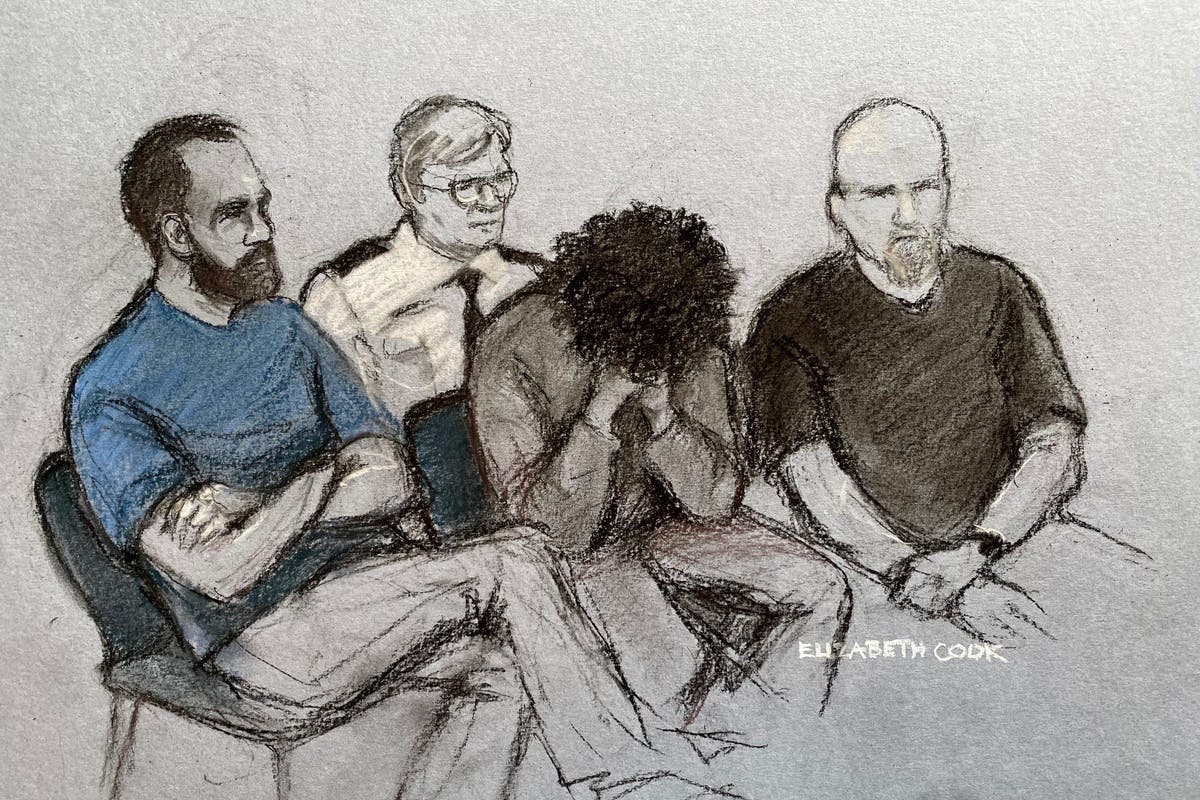
MPs in Nigel Farage’s Reform UK party have called for a debate on the death penalty after a killer who murdered three girls at a children’s dance class was sentenced.
Axel Rudakubana, 18, was given life with a minimum of 52 years in prison for the horrific attack which was described as a “pre-meditated attempt to commit indiscriminate mass murder”.
Judge Mr Justice Goose said he was unable to hand him a rare whole life order because he was only 17 at the time of the attack on 29 July last year. He turned 18 just nine days later.
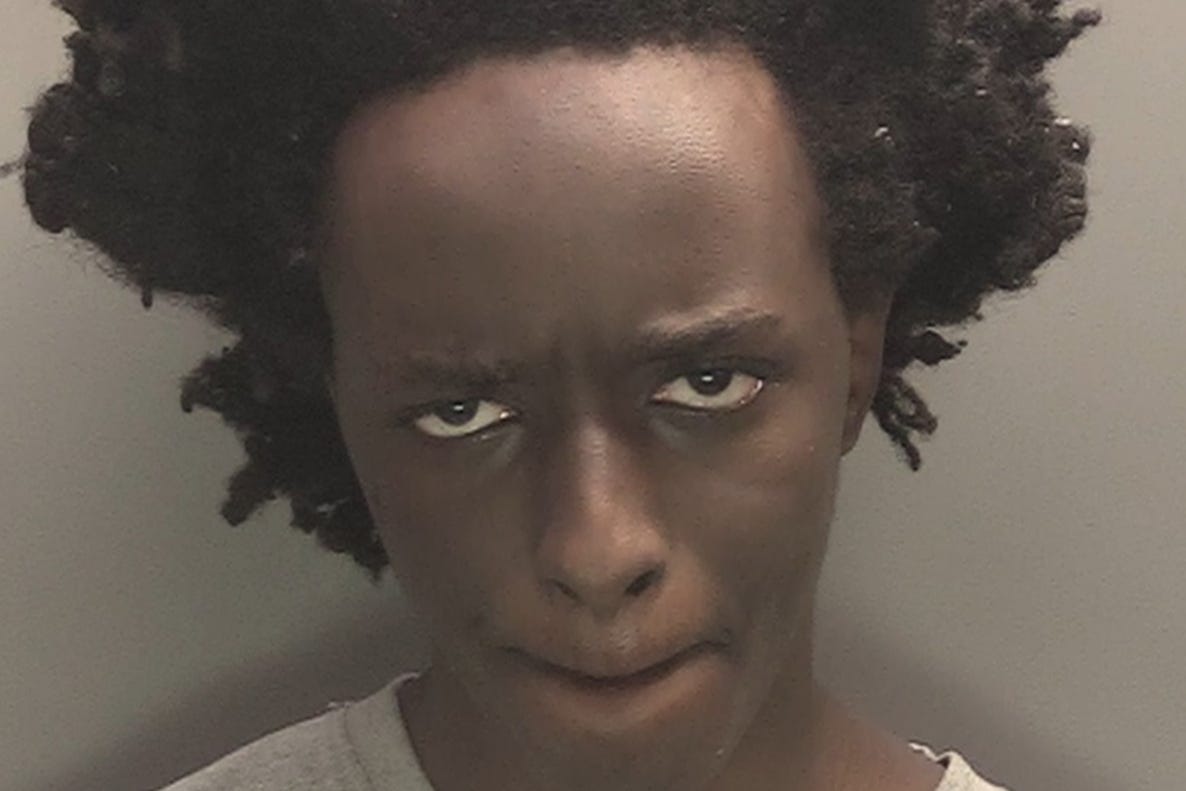
Southport’s Labour MP Patrick Hurley said the sentence was “not severe enough” and he had asked the Attorney General to review the sentence as “unduly lenient”.
The Attorney General’s Office said the case had been referred under the unduly lenient sentence scheme, which requires just one request in order for punishments handed out in court to be reconsidered.
Attorney General Lord Hermer and Solicitor General Lucy Rigby have 28 days to decide whether to refer the sentence to the Court of Appeal.
Meanwhile, Reform UK’s deputy leader Richard Tice has called for a “national debate” on the death penalty.
The MP told LBC: “I don’t think we should be afraid of having a national debate on important big issues like this. I think that many people in the country would like at least a debate.”
The last use of the death penalty in the UK took place in 1964.
Another Reform MP Rupert Lowe said it was “time for a national debate” on the use of capital punishment “in exceptional circumstances”.
A third, Lee Anderson, posted a picture of a noose on his X account, adding: “No apologies here. This is what is required!”
Party leader Mr Farage also called for the director of public prosecutions Stephen Parkinson to resign.
He said: “The British public needs to have confidence in the CPS and our police forces. Tens of millions of British citizens will find it incomprehensible how the CPS decided this was a non-terror incident and maintained that position. Those in positions of power have to be accountable and responsible for their actions.”
Prime minister Keir Starmer described the killer as a “vile offender” who “as the judge has stated… will likely never be released”. He added that the “thoughts of the entire nation” were with the families and all those affected by the “unimaginable horrors” that unfolded.
Lib Dem leader Ed Davey said: “I cannot imagine the eduring pain their [victims] families are still going through. No punishment will ever seem like enough.
“The government has an urgent duty to the families and our country to learn the lessons from what happened, and ensure a tragedy on this scale can never happen again.”
NewsBeat
Axel Rudakubana stopped by father week before Southport attack
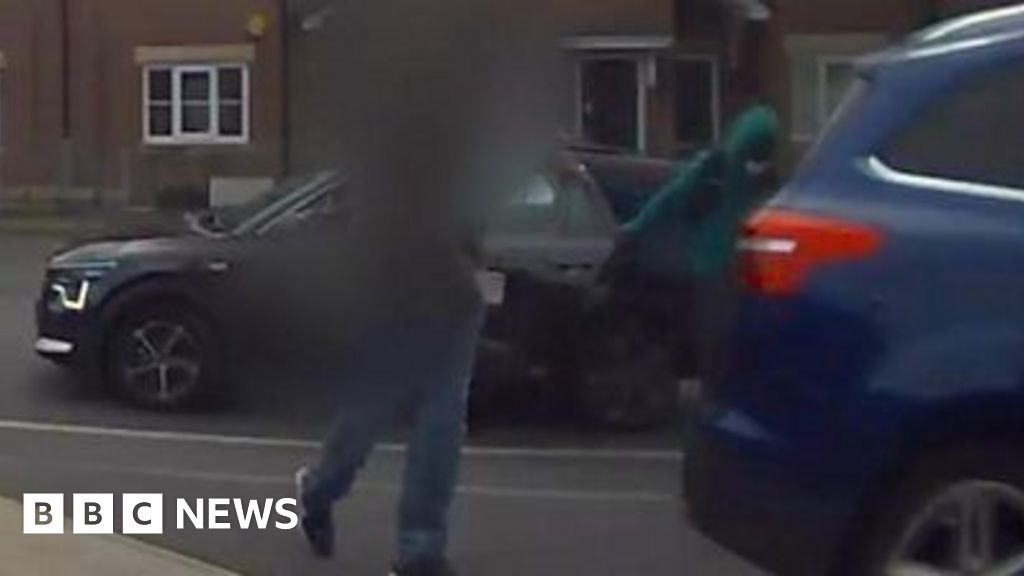
Doorbell footage captured the moment Axel Rudakubana’s father ordered him out of a taxi the week before his murderous attacks in Southport.
Merseyside Police said Rudakubana had intended to travel to a school and his father stopped him over concerns he had about his son’s behviour.
A week later, the then-17-year-old murdered three girls and tried to murder eight more children and two adults at a Taylor Swift-themed dance class.
After admitting three murders and ten attempted murders, he was jailed for 52 years at Liverpool Crown Court.
Politics
Ben Habib warns Britain risks ‘wipeout’ if it doesn’t follow Donald Trump fundamentals: ‘Get on that bandwagon!’

Political commentator Ben Habib has warned that Britain risks being “wiped out” if it fails to follow America’s conservative reform agenda, as demonstrated by Donald Trump’s sweeping executive actions in his first days back in office.
Speaking on GBN America, Habib endorsed Trump’s extensive Day one policy changes, which included over 100 executive measures targeting immigration, climate policy and diversity programmes.
The former Brexit Party MEP cautioned that the UK faces an exodus of millionaires and expertise to America unless it adopts similar reforms.
“The world is a very fluid place for expertise and capital and it will go to where it finds its best home,” Habib said.
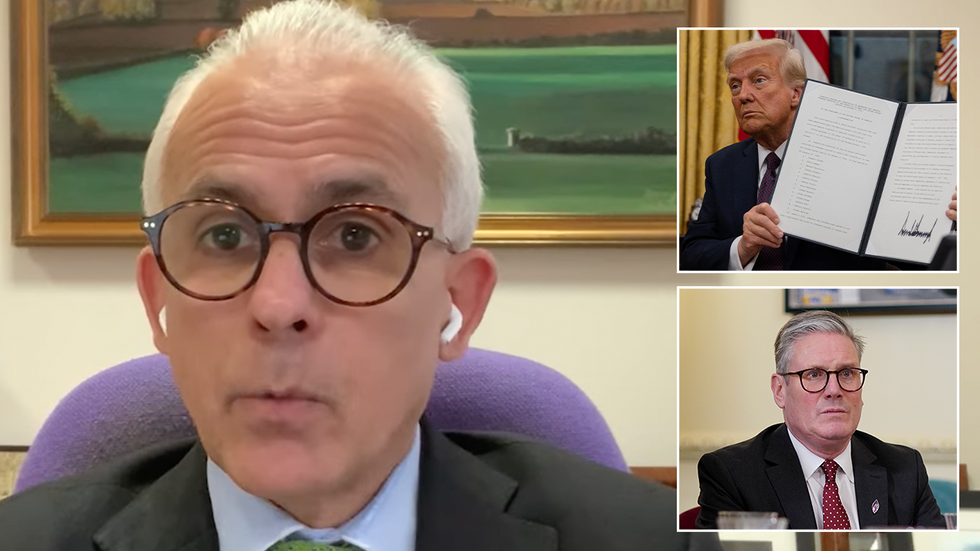
Ben Habib called on Starmer to follow in Trump’s footsteps
GBN AMERICA / PA / GB NEWS
Trump’s first day back in office saw him sign 45 executive orders, 11 memoranda, five proclamations and four sub-cabinet appointments, whilst revoking 78 Biden-era orders.
The flurry of activity began moments after his swearing-in at the US Capitol, before moving to a packed Capital One Arena where he signed orders dismantling key Biden policies.
LATEST DEVELOPMENTS
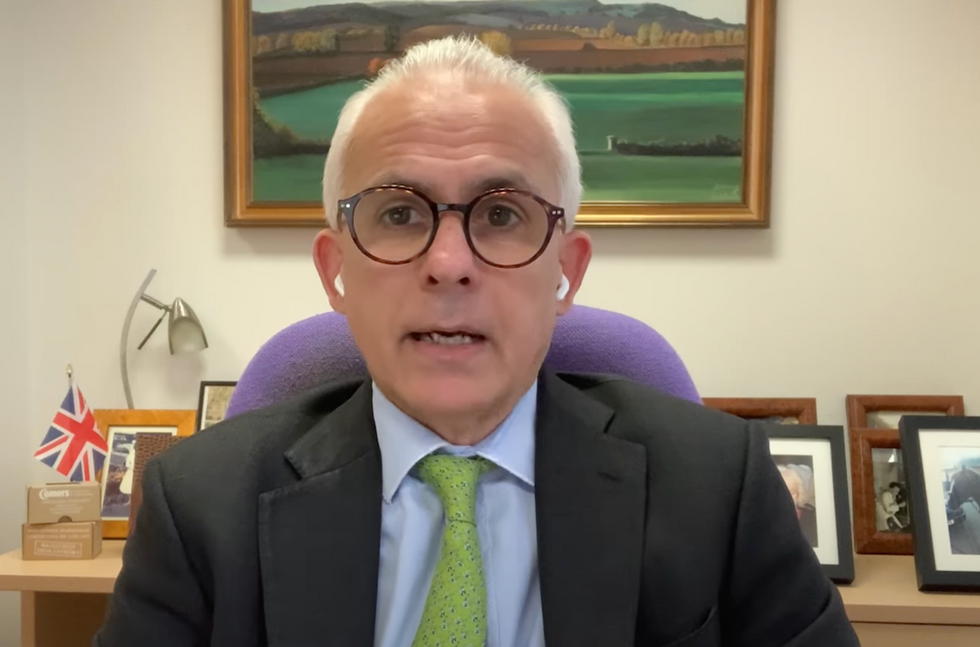
Ben Habib spoke on GBN America
GBN AMERICA
Major changes included declaring a national emergency at the southern border, ending federal diversity programmes, and withdrawing from the Paris Climate Agreement.
Trump also ordered the termination of electric vehicle mandates and established a new Department of Government Efficiency.
“With these actions, we will begin the complete restoration of America and the revolution of common sense,” Trump declared in his inaugural address.
The new president’s border initiatives included reinstating the “Remain in Mexico” policy and designating cartels as foreign terrorist organisations.
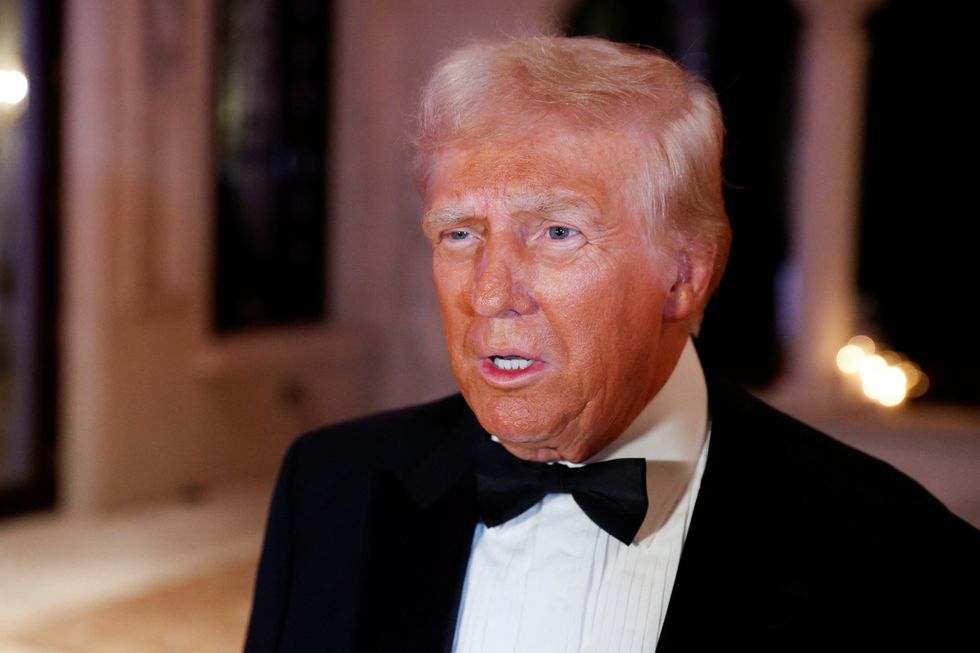 Donald TrumpREUTERS
Donald TrumpREUTERS
His order on federal workers stripped job protections from career officials in policy roles, making it easier to dismiss them.
Trump also signed measures requiring government employees to return to in-person work and establishing new rules for security clearances.
In a symbolic move, he ordered the renaming of Alaska’s Denali back to Mount McKinley and proposed changing the Gulf of Mexico to the Gulf of America.
The president celebrated his actions by tossing signing pens to supporters at the Capital One Arena.
Habib urged Labour leader Keir Starmer to look across the Atlantic, warning that without similar reforms, Britain would see “an even faster growing US, an even more attractive US with a further exodus of millionaires from the UK”.
“We have driven it out of the UK already through a really bad set of policies, even before Labour won the election,” he told GBN America.
He argued that Trump “is showing that what we have been doing for the last 27 years, the liberal, global approach to governance is not the way to run a country”.
“He is showing us the way to do it and we better get on that bandwagon or we will be wiped out,” Habib concluded.
NewsBeat
The missed chances to stop Southport killer Axel Rudakubana
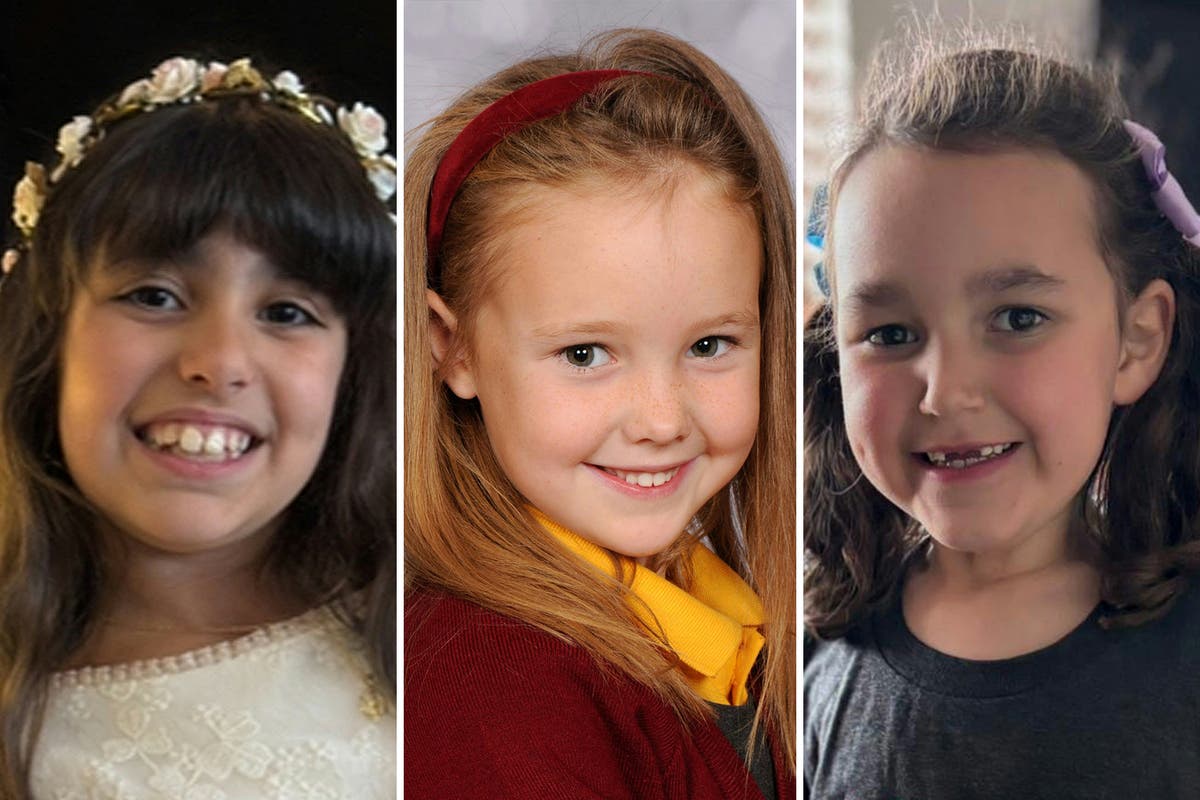
A public inquiry will be held into the murders of three girls at a Taylor Swift-themed dance class in Southport by 18-year-old Axel Rudakubana “that can get to the truth about what happened and what needs to change”.
The announcement came after it emerged Rudakubana was referred to an anti-extremism programme three times before he carried out the murders, and endangered his former teachers and peers.
Home secretary Yvette Cooper confirmed the 18-year-old had “contact with a range of different state agencies throughout his teenage years” before carrying out his “meticulously planned rampage”.
Ms Cooper said in a statement: “He was referred three times to the Prevent programme between December 2019 and April 2021 aged 13 and 14.
“He also had contact with the police, the courts, the Youth Justice system, social services and mental health services.
“Yet between them, those agencies failed to identify the terrible risk and danger to others that he posed.”
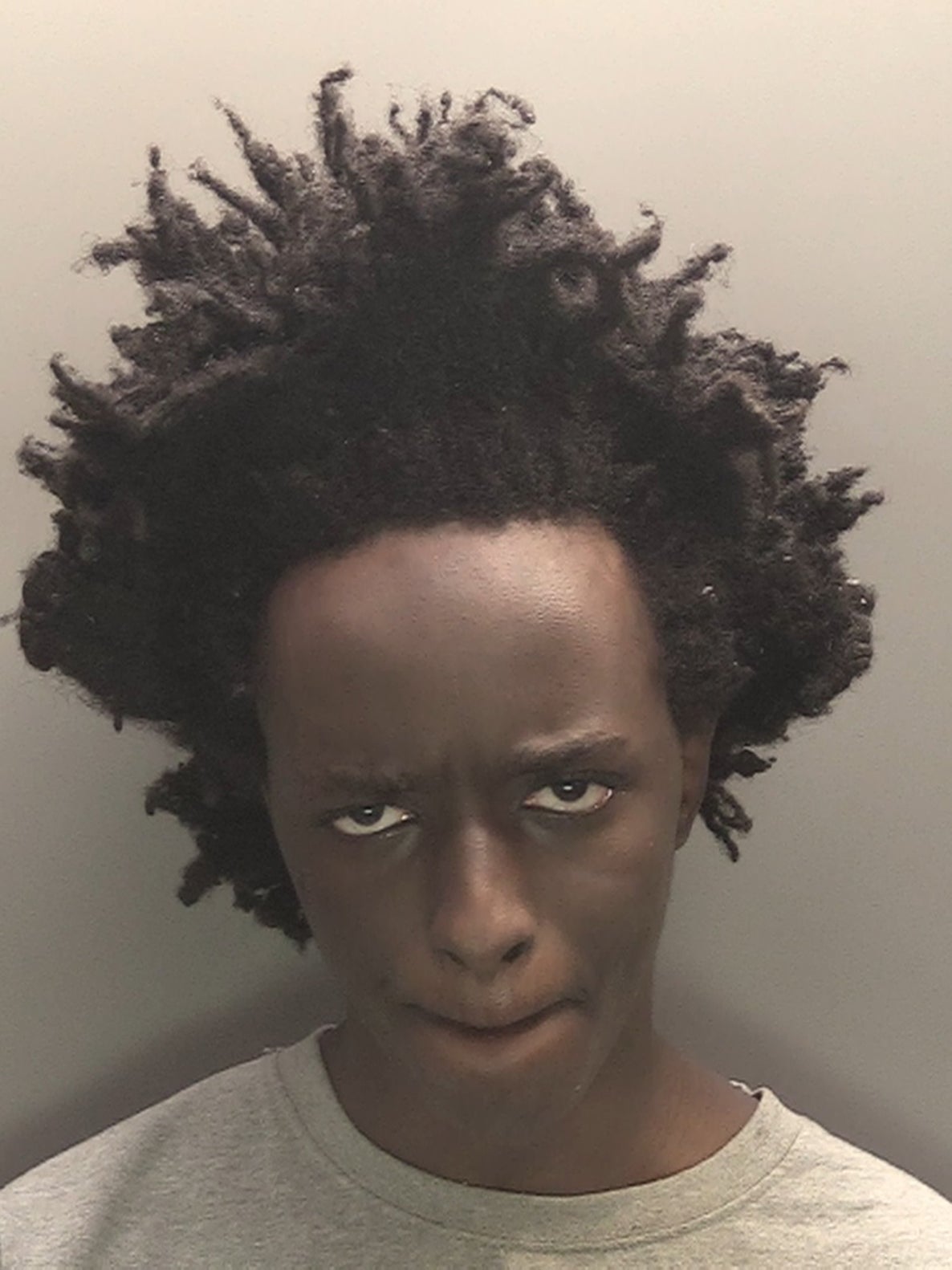
Announcing the inquiry, Ms Cooper continued: “Although, in line with CPS advice to preserve the integrity of the prosecution, we were constrained in what we were able to say at the time, the Home Office commissioned an urgent Prevent Learning Review during the summer into the three referrals that took place and why they were closed.
“We will publish further details this week, alongside new reforms to the Prevent programme.
“But we also need more independent answers on both Prevent and all the other agencies that came into contact with this extremely violent teenager as well as answers on how he came to be so dangerous, including through a public inquiry that can get to the truth about what happened and what needs to change.”
The 18-year-old pleaded guilty to the attack on the first day of his trial. The teenager from Banks, Lancashire, admitted 16 offences, including three counts of murder and 10 counts of attempted murder at Liverpool Crown Court on Monday.
Sir Keir Stamer said there are “grave questions” to answer about how the state failed the Southport murder victims. The prime minister welcomed the news that Rudakubana pleaded guilty and pledged to “leave no stone unturned” in investigating why the attack had not been prevented.
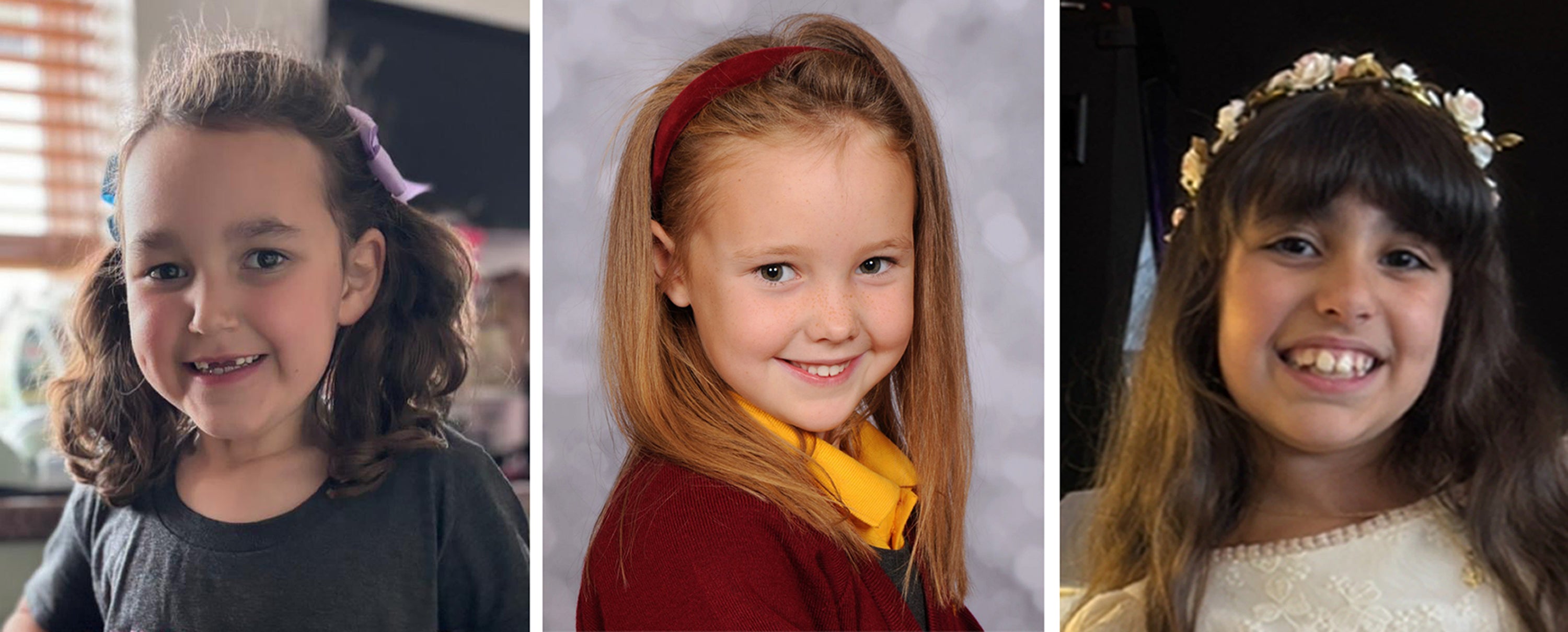
Alice da Silva Aguiar, nine; Bebe King, six; and Elsie Dot Stancombe, seven; died following the attack at the dance class in The Hart Space on a small business park in the seaside town shortly before midday on 29 July.
The defendant admitted their murders as well as the attempted murders of eight other children, who cannot be named for legal reasons, class instructor Leanne Lucas and businessman John Hayes.
A week before launching a knife attack on the dance class, Rudakubana had attempted to travel to his former school as pupils broke up for the summer holidays.
The 18-year-old booked a taxi to go to Range High School in Formby on 22 July, The Independent understands, seven days before he would travel by taxi to The Hart Space in Southport.
On both occasions, he is said to have been wearing the same outfit – a green hooded sweatshirt with the hood pulled up, despite the summer temperatures, and a surgical mask.
Ten minutes after his taxi was booked, at 12.30pm, pupils were due to leave the school premises on their last day of term, it is understood.
On 22 July, however, his father followed him out of the house and pleaded with the taxi driver not to take him.
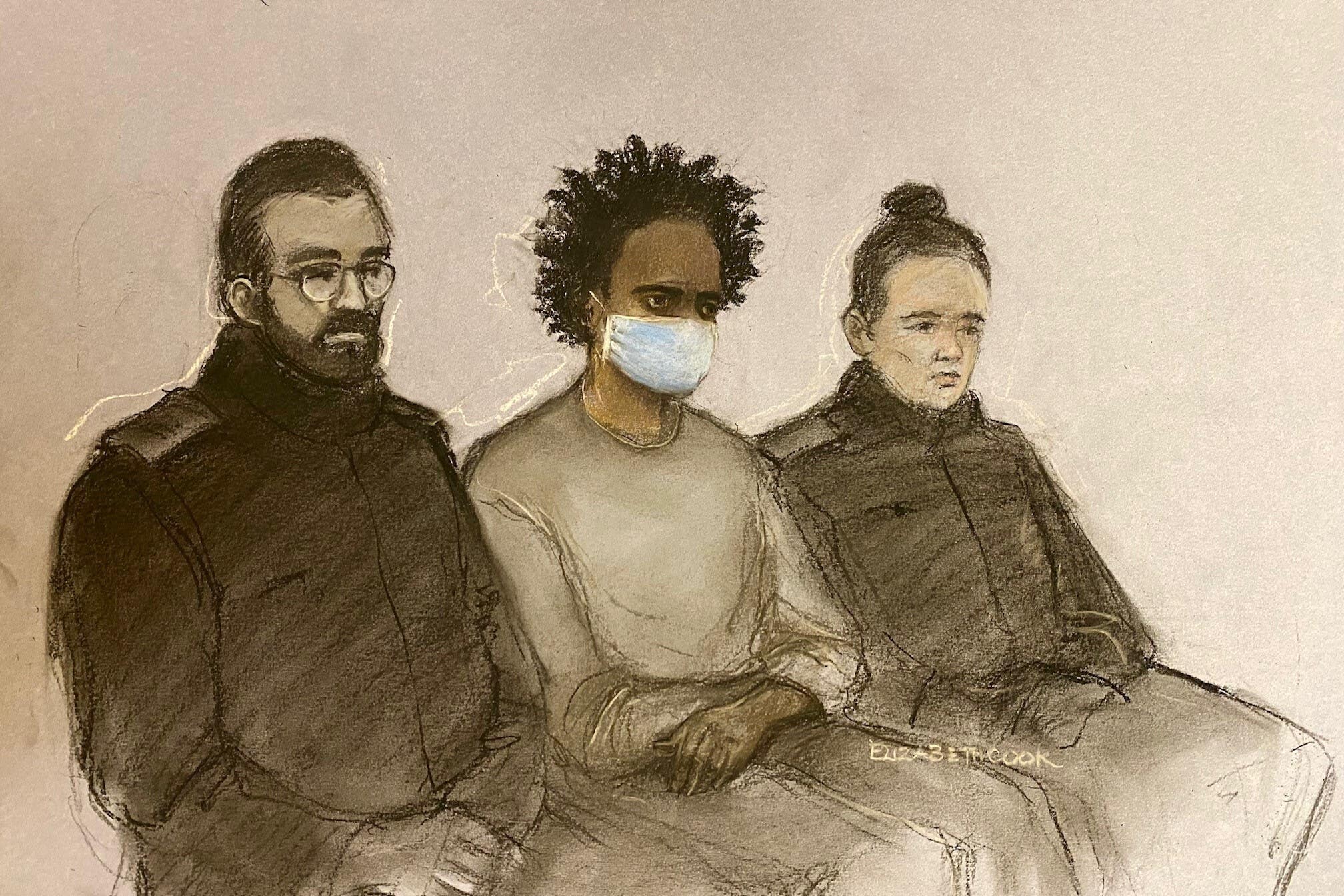
Rudakubana was permanently excluded from the secondary school over claims he was carrying a knife and later returned to attack someone with a hockey stick, it is understood.
Aged 17 at the time of the attack, Rudakubana was born in Cardiff to Rwandan parents and had moved with his family to the village of Banks in Lancashire about a decade ago.
Neighbours described the family as unremarkable, but it can now be reported that teachers had concerns about his behaviour from when he entered Year 9.
Rudakubana was excluded in around 2019 after telling Childline that he was being racially bullied and was bringing a knife into school to protect himself, it is understood.
It is not known if he was being bullied or if he ever brought a weapon into the school while he was a pupil.
After his exclusion, he returned to the school and assaulted someone with a hockey stick, the intended target being a former bully or someone he had a grievance with, it is understood. Rudakubana then attended two specialist schools, The Acorns School in Lancashire and Presfield High School & Specialist College in Southport, and teachers were concerned about his behaviour. His in-person attendance at Presfield was less than 1 per cent.
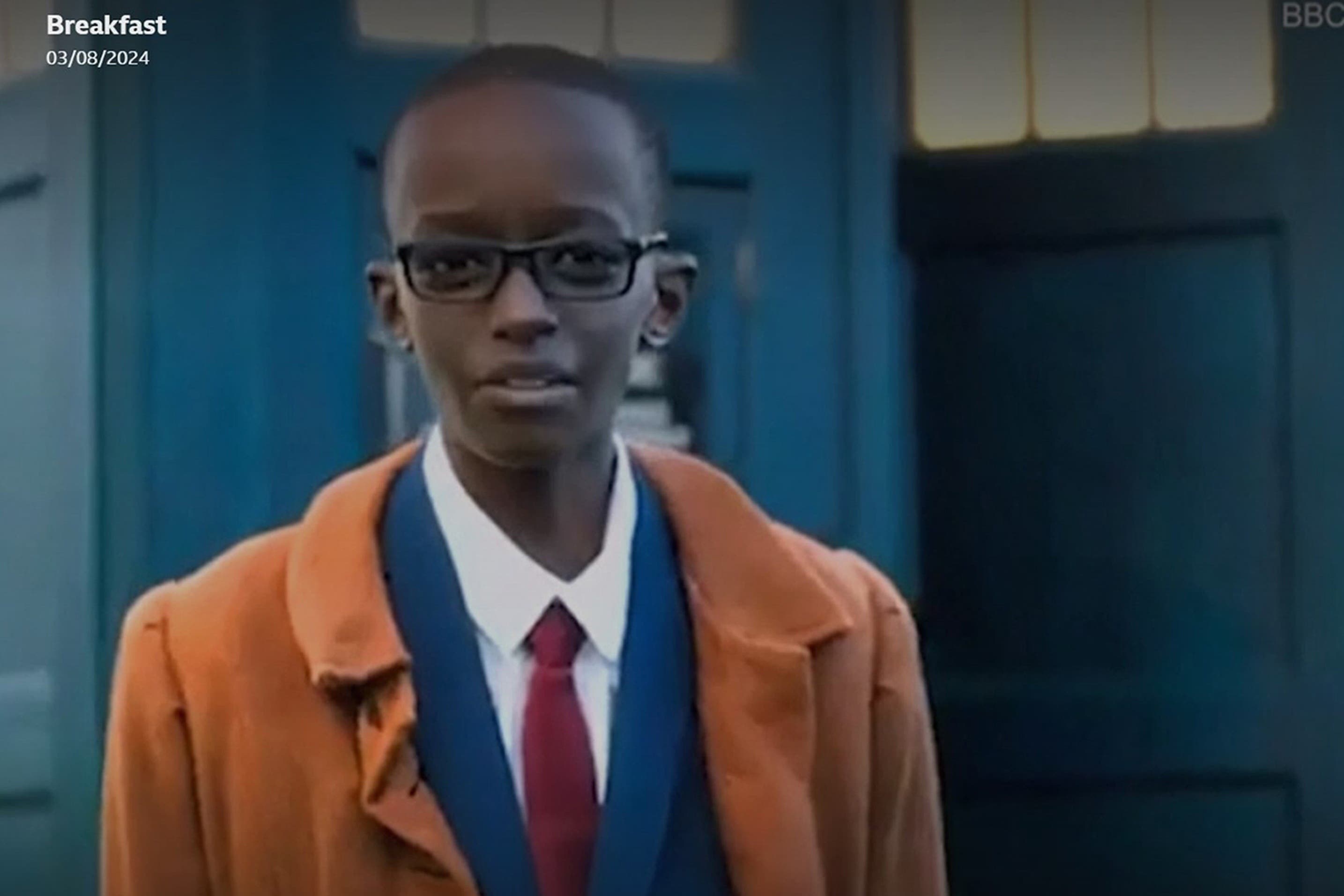
In a statement on Monday, prime minister Keir Starmer said: “The news that the vile and sick Southport killer will be convicted is welcome.
“It is also a moment of trauma for the nation, and there are grave questions to answer as to how the state failed in its ultimate duty to protect these young girls.
“Britain will rightly demand answers, and we will leave no stone unturned in that pursuit.”
Tory leader Kemi Badenoch said ministers must give a “complete account” of who “knew what and when” about Rudakubana, as she piled pressure on the government.
Mr Justice Goose said Rudakubana will be sentenced on Thursday.
He is not expected to receive a whole life order because he was 17 at the time of the murders – the measures can normally only be imposed on criminals aged 21 or over, and are usually only considered for those aged 18 to 20 in exceptional circumstances.
Rudakubana also admitted possessing a knife on the date of the attack, production of a biological toxin, ricin, on or before 29 July and possession of information likely to be useful to a person committing or preparing to commit an act of terrorism.
The terrorism offence relates to a PDF file entitled Military Studies In The Jihad Against The Tyrants, The Al Qaeda Training Manual which he is said to have possessed between 29 August 2021 and 30 July 2024.
The ricin, a deadly poison, and the document were found during searches of the home in Old School Close which he shared with his parents, who are originally from Rwanda.
NewsBeat
Keely Hodgkinson: Olympic 800m gold medallist voted 2024 Sunday Times Sportswoman of the Year

Olympic 800m gold medallist Keely Hodgkinson has been voted the 2024 Sunday Times Sportswoman of the Year.
The 22-year-old ended her wait for a global title with victory at the Olympic Games in Paris last summer and won BBC Sports Personality of the Year in December 2024.
Hodgkinson also retained her European 800m title and became the sixth-fastest woman of all time when she improved her British record to one minute 54.61 seconds at the London Diamond League.
Hodgkinson follows last year’s winner, England goalkeeper Mary Earps, athlete Eilish McColgan, and tennis player Emma Raducanu, who won in 2021.
The shortlist for the 2024 award was dominated by Olympic medal winners with Hodgkinson scooping it ahead of 1500m runner Georgia Bell, showjumper Laura Collett, cyclist Emma Finucane, heptathlete Katarina Johnson-Thompson, trampoline gymnast Bryony Page, shooter Amber Rutter and Paralympic cycling great Sarah Storey.
Elsewhere, diver Andrea Spendolini-Sirieix was named the newspaper’s Young Sportswoman of the Year after she won bronze in Paris.
Storey picked up the Disability Sportswoman of the Year after she added two more golds to her medal collection at the Paralympic Games.
Rowers Lauren Henry, Lola Anderson, Georgina Brayshaw and Hannah Scott won the Team of the Year for their dramatic victory in the women’s quadruple sculls at Paris 2024.
Ultra runner Jasmin Paris won the Helen Rollason Award for Inspiration, while retired PE teacher and cycling enthusiast Val French won the Grassroots Sportswoman of the Year.
BBC radio presenter Eleanor Oldroyd’s contribution to sports broadcasting was also recognised with a special Editor’s Choice Award.
Politics
Donald Trump ‘personally asked Boris Johnson’ to witness his swearing in while Nigel Farage ‘did not make the cut’
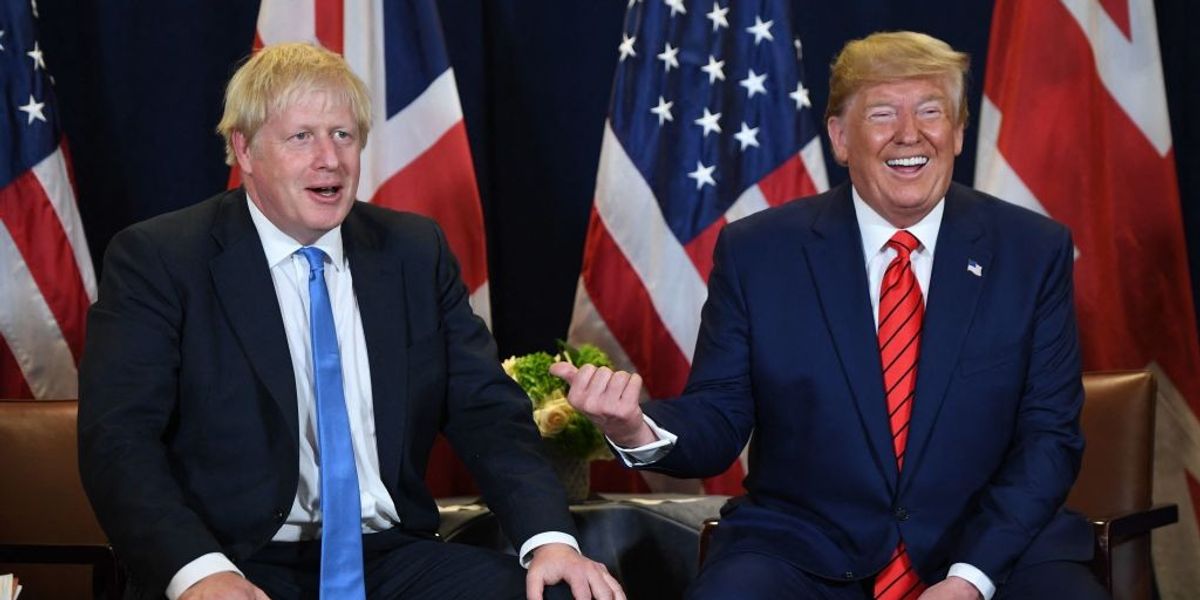
Donald Trump personally asked Boris Johnson to witness his swearing in as President, and has a “good working relationship” with him, says former Tory Security minister Tom Tugendhat.
Tugendhat, who was in Washington DC last week ahead of the President’s inauguration, said Trump has personally asked Johnson to be in the rotunda on Capitol Hill to witness personally his swearing in.
Earlier this week Nigel Farage, the leader of Reform UK, told GB News that he had not “made the cut” and been invited to sit in the Rotunda audience.
Tugendhat told today’s Chopper’s Political Podcast that he had been told by “members of the administration” that it was “a personal decision by the President” to invite Johnson to be there.

Donald Trump personally asked Boris Johnson to witness his swearing in as President, and has a “good working relationship” with him, says former Tory Security minister Tom Tugendhat
Getty
He said: “It is very clear to me that that was a personal choice by the president choosing people who he was close to, to be around him on the day.”
He added: “It wasn’t a large list. There’s not that many people can fit in there. And the President went through the list personally and removed some names and added [others].”
Tugendhat added that Johnson – who has in the past intimated he wants a way back into politics – “has had a very good working relationship with Donald Trump.
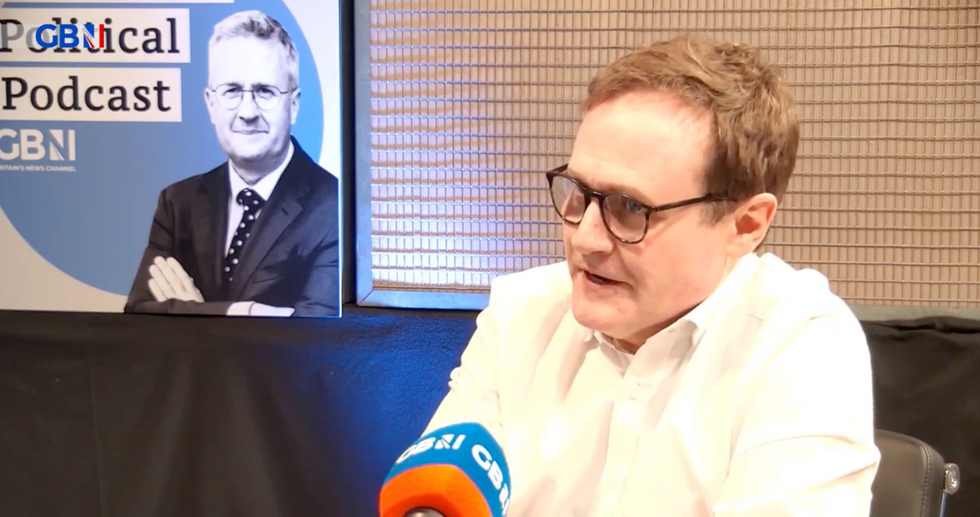
Tom Tugendhat, who was in Washington DC last week ahead of the President’s inauguration, said Trump has personally asked Johnson to be in the rotunda on Capitol Hill to witness personally his swearing in
GB News
“He’s got a lot of friends in Washington.
“He’s got a voice that reaches parts that other politicians don’t reach.”
Listen or watch Chopper’s Political Podcast on Apple Podcasts, Spotify or GB News’ YouTube channel.
NewsBeat
Moment ten-pint drink-driver confronted after leaving victim amputee | News
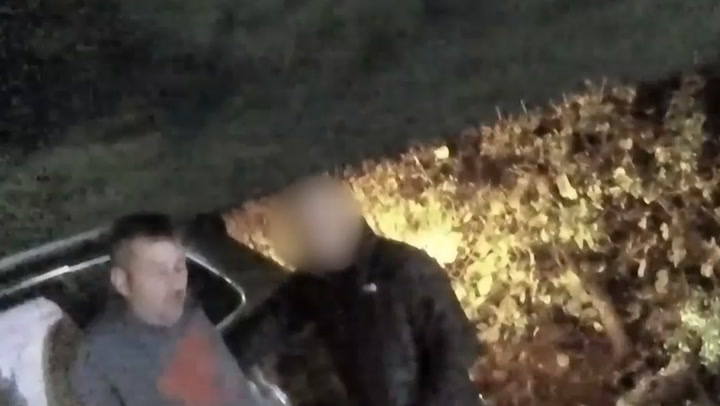

Bodycam footage shows police confronting a drink driver after he seriously injured two people in a collision near Bristol Airport, leaving one victim needing her arm amputated at the elbow.
Another victim suffered significant internal bleeding and bruising.
Leigh Brean, 43, of Lawrence Road, Wrington, was jailed for three years and two months and was told he was not allowed to drive for 11 years and seven months.
In five hours, he had drunk 10 pints before getting behind the wheel of the car.
He pleaded guilty to causing serious injury by dangerous driving and for failing to provide a specimen.
NewsBeat
‘My daughter’s bones were scattered on the ground’
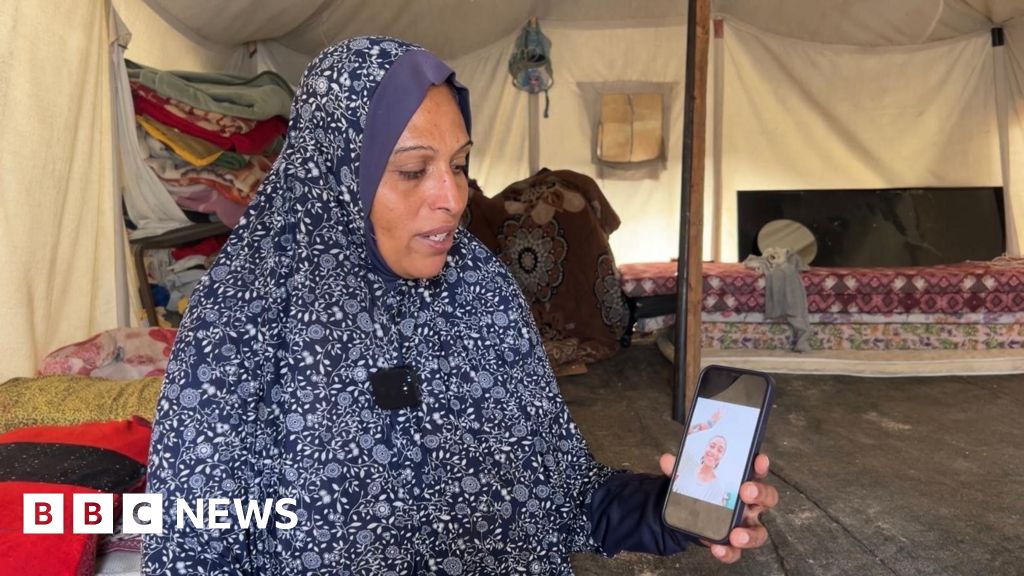
Special correspondent
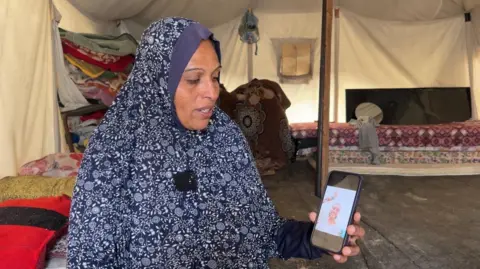 BBC
BBCEverything gets mixed up together. The child’s multi-coloured backpack. A running shoe. A steel pot perforated by shrapnel. Bits of beds, chairs, cookers, lampshades; the glass of broken windows, mirrors, drinking glasses. Scraps of clothing.
These last shredded, dust covered items can be markers. Often they belong to the dead lying near the surface of the rubble.
“Since the Israeli occupation forces withdrew from Rafah, we have had about 150 calls from civilians about the presence of their relatives’ bodies under houses,” says Haitham al-Homs, director of Emergency and Ambulance Services for the Civil Defence agency in Rafah, at the southernmost end of the Gaza Strip.
The Palestinian health authorities estimate that 10,000 people are missing. Where there is no obvious marker like clothing at the surface, the search teams rely on information from relatives and neighbours, or they follow the smell of death that radiates from the ruins.
WARNING: This story contains distressing content
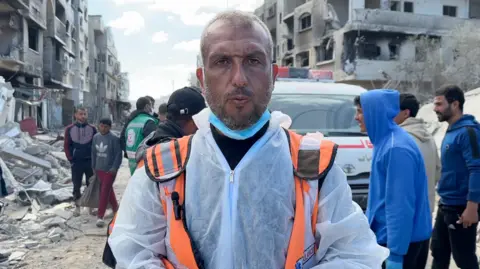
The Israeli government has banned the BBC and other international news organisations from entering Gaza and reporting independently. We depend on trusted local journalists to record the experiences of people like those who are searching for the missing.
At the end of every day, Mr Homs updates the list of those found. His team excavates the rubble with care, aware that they are searching for fragments of broken humanity. Often what is recovered is no more than a pile of bones. Israel’s high explosive bombs blasted and mangled into pieces many of the dead. The bones and scraps of clothing are placed in white body bags upon which Mr Homs writes the Arabic word “majhoul”. It means “unidentified”.
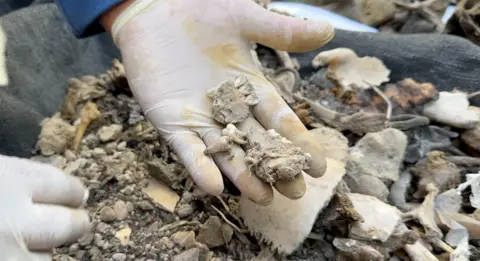
A resident of Rafah, Osama Saleh, went back to his home after the ceasefire and found a skeleton inside. The skull was fractured. Mr Saleh reckons the body lay there for four to five months. “We are humans with feeling…I can’t convey to you how miserable the tragedy is,” he says.
To be surrounded every day by the smell of decomposing bodies is a deeply unsettling experience, as those who have witnessed the aftermath of mass death will often testify.

“The bodies are terrifying. We are seeing terror,” Osama Saleh says. “I swear it is a painful feeling, I have cried.”
Families have also been arriving at hospitals to search for remains. In the courtyard of the European Hospital in southern Gaza, collections of bones and clothing are spread out on body bags.
Abdul Salam al-Mughayer, 19, from Rafah, went missing in the Shaboura area; according to his uncle, Zaki, it was a place you didn’t come back from if you went there during the war. “So, we didn’t go to look for him there for that reason. We wouldn’t have returned.”
Zaki believes a set of bones and clothes in front of him belong to the missing Abdul Salam. He is standing with a hospital worker, Jihad Abu Khreis, waiting for Abdul Salam’s brother to arrive.
“It’s 99% certain the body is his,” Mr Abu Khreis says, “but now we need the final confirmation from his brother, the closest people to him, to make sure that the trousers and shoes are his.”
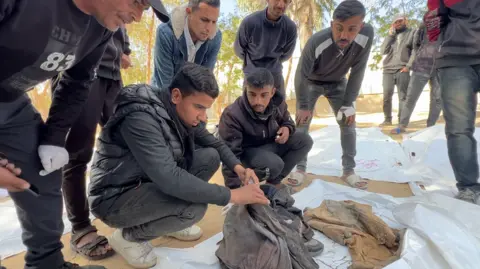
Soon after the brother arrived from the tented refugee camp of al-Mawasi, also in southern Gaza. He had a photograph of Abdul Salam on his phone. There was a photo of his running shoes.
He knelt before the body bag and pulled back the cover. He touched the skull, the clothes. He saw the shoes. There were tears in his eyes. The identification was complete.
Another family moved along the row of body bags. There was a grandmother, her son, an adult sister, and a toddler. The child was kept at the back of the group while the elderly woman and her son looked under the cover of the body bag. They stared for a few seconds and then embraced each other in grief.
After this, the family, helped by hospital workers, carried away the remains. They were weeping, but nobody cried aloud.
 Handout
HandoutAya al-Dabeh was 13 years old and was living with her family and hundreds of other refugees at a school in Tal al-Hawa, in Gaza City in the north. She was one of nine children.
One day at the start of the war Aya went to go to the bathroom upstairs at the school and – her family says – she was shot in the chest by an Israeli sniper. The Israel Defense Forces say they do not target civilians and blame Hamas for attacking from civilian areas. During the war the UN Human Rights Office said that that there has been “intense shooting by Israeli forces in densely populated areas resulting in apparently unlawful killings, including of unarmed bystanders.”
The family buried Aya beside the school, and her mother Lina al- Dabah, 43, wrapped her in a blanket “to protect her from the rain and the sun” in case the grave was disturbed and exposed to the elements.
When the Israeli military took over the school Lina fled south. She went with four other children – two daughters and two sons – to reunite with her husband who’d gone earlier with the couple’s other children. Lina had no option but to leave her daughter where she lay, hoping to come back and recover the remains for a proper burial once peace came.
“Aya was a very kind girl, and everyone loved her. She used to love everyone, her teachers and her studies, and she was very good at school. She wished well for everyone,” Lina says. When the ceasefire came Lina asked relatives still living in the north to check up on Aya’s grave. The news was devastating.
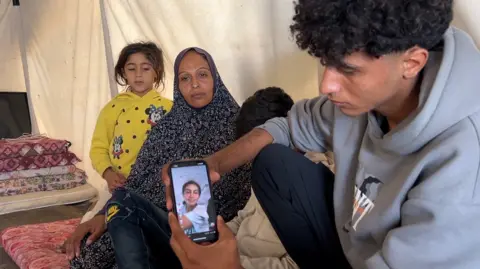
“They informed us that her head was in one place, her legs were in another, while her ribs were somewhere else. The one who went to visit her was shocked and sent us the pictures,” she says.
“When I saw her, I couldn’t understand how my daughter was taken out of her grave, and how did the dogs eat her? I can’t control my nerves.”
The relatives have collected the bones and soon Lina and her family will travel north to carry Aya’s remains to a proper grave. For Lina, there is grief with no end, and a question that has no answer – the same question that sits with so many parents who lost children in Gaza. What could they have done differently, the circumstances of the war being what they were?
“I couldn’t take her from where she was buried,” says Lina. Then she asks: “Where could I have taken her?”
With additional reporting by Malak Hassouneh, Alice Doyard, Adam Campbell.
-

 Fashion8 years ago
Fashion8 years agoThese ’90s fashion trends are making a comeback in 2025
-

 Entertainment8 years ago
Entertainment8 years agoThe Season 9 ‘ Game of Thrones’ is here.
-

 Fashion8 years ago
Fashion8 years ago9 spring/summer 2025 fashion trends to know for next season
-

 Entertainment8 years ago
Entertainment8 years agoThe old and New Edition cast comes together to perform You’re Not My Kind of Girl.
-

 Sports8 years ago
Sports8 years agoEthical Hacker: “I’ll Show You Why Google Has Just Shut Down Their Quantum Chip”
-
Business8 years ago
Uber and Lyft are finally available in all of New York State
-
Entertainment8 years ago
Disney’s live-action Aladdin finally finds its stars
-
Sports8 years ago
Steph Curry finally got the contract he deserves from the Warriors
-
Entertainment8 years ago
Mod turns ‘Counter-Strike’ into a ‘Tekken’ clone with fighting chickens
-
Fashion8 years ago
Your comprehensive guide to this fall’s biggest trends







You must be logged in to post a comment Login